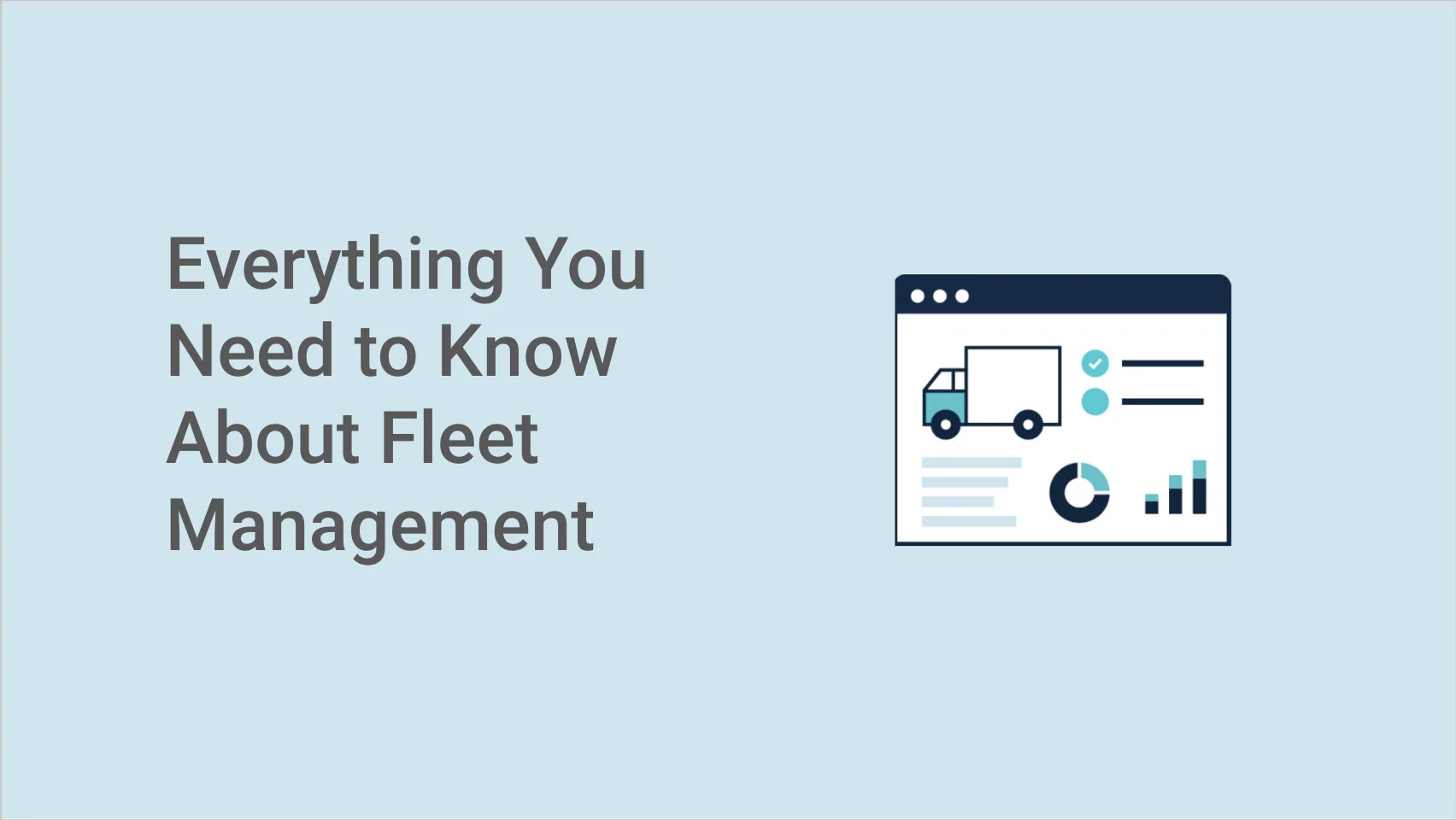What is an owner-operator?
June 3, 2025

Get Started with Samsara
Check our pricesKey Takeaways
In the trucking industry, many drivers dream of becoming owner-operators so they can become their own boss and make their own hours. Learn what's needed to become an owner-operator, how they work, and how they differ from company truck drivers.
What is an owner-operator?
In the trucking industry, an owner-operator is a self-employed truck driver who owns and operates their own commercial trucking rig. Owner-operators are independent contractors who can be their own boss and set their own hours. Most owner-operators start as company drivers for trucking companies first to gain experience. Then, they branch out by becoming small business owners.
Owner-operators are free to select the loads they want or enter into a lease agreement to contract with one customer or product.
What’s needed to become an owner-operator?
To become an owner-operator, a driver will need to obtain:
A commercial driver’s license (CDL): A commercial driver’s license is required to operate large, heavy, or placarded hazardous material vehicles.
USDOT number: The Federal Motor Carrier Safety Administration (FMCSA) assigns a unique identifier when collecting and monitoring a company's safety information.
Motor carrier or MC number: The FMCSA’s operating authority to haul regulated commodities.
Insurance: The FMCSA requires owner-operators with authority to have liability coverage.
Once owner-operators have the above requirements, they need to decide whether to buy or lease a commercial truck based on the kind of business they want to operate. They also need to start building a customer base, which is often the hardest part. To alleviate the initial challenge of finding loads, drivers might join a load board to find loads to move. Once a driver makes connections and builds their business and reputation, it becomes easier to find contracts and work independently.
What do owner-operators do?
Since owner-operators also act as fleet managers, they’re responsible for purchasing their own vehicle insurance, maintaining electronic logging device (ELD) regulation compliance, and coordinating loads themselves. This can make income more variable than in larger fleets with a dispatch office.
Some large fleets will also partner with owner-operators. Similar to franchising, fleet owner-operators become free agents under the umbrella of a larger fleet. The fleet provides the load requests and insurance, and the driver takes home the vast majority of the gross pay per load.
What’s the difference between an owner-operator and a company truck driver?
In the trucking business, an owner-operator has many more responsibilities than a company driver employed by a motor carrier. These responsibilities include setting up a business, maintaining vehicles and licenses, and accounting. They also need to stay in compliance with FMCSA regulations.
Company drivers:
Drive in a vehicle provided by the company they are employed by.
Pick up and deliver loads assigned by dispatch.
Don’t need to pay for fuel, maintenance, or insurance on the truck.
Are paid by the mile and sometimes receive pay related to loading/unloading, detention, and performance pay.
Owner-operators:
Own and operate a small business, using either used trucks, new trucks, or lease purchase.
Can select their freight from either the spot market (if they have their own Department of Transportation (DOT) operating authority or through leasing with another motor carrier and using freight load boards.
Are responsible for the entire business, including finding loads, managing operating expenses, employing other staff, hauling, maintaining their own truck and making earnings decisions.
Set payment terms with shippers, often by a written contract. They get paid through mileage pay or a flat rate from each load they haul.
5 tips owner-operators need to know about optimizing their fleet
Owner-operators who manage their own small fleet, even if it's just a few trucks and drivers besides themselves, need to wear many hats. Owner-operators are required to be both a driver and a manager, which presents unique challenges. Here's are 5 tips they need to know about managing their fleet:
Understand regulations and compliance: Since owner-operators are oftentimes also drivers of their own commercial vehicles, it’s important that they understand and adhere to all FMCSA, state, and local regulations. These laws and mandates evolve constantly, and ensuring compliance to regulations around safety, hours of service, vehicle maintenance, and licensing is essential for legal and safe operations.
Ensure proactive vehicle maintenance: Implementing preventive maintenance schedules for your fleet helps minimize breakdowns, reduce downtime, ensure safety, and minimizes operational costs.
Prioritize safety and mitigate risk: Cultivating a strong safety culture, providing thorough driver training, and having clear accident procedures are essential to protect drivers, the public, and the business from liability and operational costs.
Optimize your financial management: As an independent business owner, you need to have full visibility into your bottom line. To ensure our financial health and profitability, you’ll need to focus on managing your finances, keeping an eye on budgeting, cash flow control, and accurate record-keeping.
Leverage technology to improve operational efficiency: Advanced technologies are available to streamline fleet management, helping to improve key tasks such as route planning, dispatch, load procurement, and more.
How owner-operators can improve their fleet operations with Samsara
Owner-operators looking to run their business more smoothly and efficiently are adopting advanced fleet management technologies like Samsara. With Samsara, you can connect people, equipment, systems, and sites onto one open platform. Whether it’s driver safety or operational efficiency, Samsara’s AI-powered technology uses trillions of data points to deliver accurate insights that improve safety and streamline operations. Samsara’s platform is secure, easy-to-deploy, scalable, and integrates easily with existing tools.
If you’re an owner-operator and want to improve fleet management, check out this video.
To learn more about how you can improve the safety and efficiency of your fleet, check out Samsara’s Platform solution and speak with our team today.
